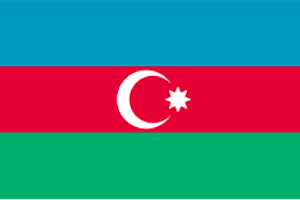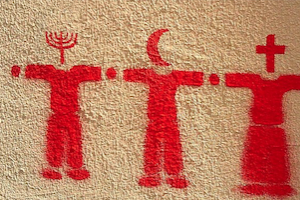Azerbaijan’s Formula: Secular Governance and Civic Nationhood
Secular Government and Civic Nationhood in Azerbaijan: History, Context, Implications

Secular Government and Civic Nationhood in Azerbaijan: History, Context, Implications
Tuesday, 22 November 2016, from 12 to 2 p.m.
Since its emergence as a nation in the early twentieth century, Azerbaijan’s state and society have both remained remarkably faithful to secular governance and a civic national conception. In recent years, the government has doubled down on these concepts, among other by designating 2016 the year of multiculturalism. But what do these terms mean in practice? What are the policies developed by the Azerbaijani government, and what reactions have emerged in society? How does Azerbaijan compare to countries in its neighborhood, and what are the implications for the West?
Speakers:
Svante E. Cornell, Director, Central Asia-Caucasus Institute
Moderator: Mamuka Tsereteli, Research Director, Central Asia-Caucasus Institute
This event may now be viewed on the SAIS Events channel on YouTube.
SAIS - Johns Hopkins University
1619 Massachusetts Ave., NW
Washington, DC 20036
Multiculturalism and inter-religious tolerance: the experience of Azerbaijan and its significance for Europe

Multiculturalism and inter-religious tolerance: the experience of Azerbaijan and its significance for Europe
Wednesday, Nov. 18, 2015, from 2 to 4 p.m.
On November 18, 2015, a delegation of religious dignitaries from Azerbaijan will visit Stockholm. The delegation consists of the Muslim mufti, Sheikh-ul-Islam Allahshukur Pashazade, as well as the Russian Orthodox Archbishop, the Catholic Nuncio, and the leaders of the community of Mountain Jews and the Community of European Jews of Azerbaijan, as well as the State Counsellor for multiculturalism and religious affairs. In a time when the greater Middle East suffers from escalating sectarian conflict, the Azerbaijani delegation provides a unique example of ethnic, religious tolerance and mutual understanding -- as recently showcased by Time Magazine.
A seminar will be held in Stockholm's Sheraton Hotel on November 18 between 14.00-18.00, which will provide the opportunity to discuss the Azerbaijani and Swedish experiences of multiculturalism and religious tolerance.
The Institute for Security and Development Policy is a co-organizer of this seminar in cooperation with the Embassy of Azerbaijan to the Kingdom of Sweden, and the Baku International Multiculturalism Center.
Conference program:
- 14:00 – 14:30 Welcome speeches
Kamal Abdullayev: Member of the Azerbaijan National Academy of Sciences
State Adviser on Inter-ethnic, Multicultural and Religious Affairs of the Republic of Azerbaijan (click for video)
Sheikh ul-Islam Allahshukur Pashazada
Chairman of the Caucasian Muslim Board
Dr. Adish Mammadov
Ambassador of the Republic of Azerbaijan to the Kingdom of Sweden (click for video)
Dr. Svante Cornell
Director of the Institute of Security and Development Policy (click for video)
- 14:30 – 16:00 Panel I
"Azerbaijan's experience of inter-religious tolerance"
Moderator:
Azad Mammadov
Executive director of Baku International Multiculturalism Center
Lectures:
Kamal Abdullayev: Member of the Azerbaijan National Academy of Sciences
State Adviser on Inter-ethnic, Multicultural and Religious Affairs of the Republic of Azerbaijan
Sheikh ul-Islam Allahshukur Pashazada
Chairman of the Caucasian Muslim Board
Alexander Ishein
Archbishop of the Baku and Azerbaijan eparchy of the Russian Orthodox Church
Ordinary Vladimir Fekete
Ordinary of the Apostolic Prefecture of the Roman Catholic Church in Azerbaijan
Milix Yevdayev
Leader of the Mountain Jews Religious Community
Gennadiy Zelmanovich
Chairman of the Baku Religious Community of European Jews
16:00 – 16:30 Break
- 16:30 – 18:00 Panel II
"Azerbaijani and Swedish models of multiculturalism: comparative analysis"
Moderator:
Dr. Svante Cornell
Director of the Institute of Security and Development Policy
Lectures:
Helene Egnell
The Centre for Inter Faith Dialogue
Göran Lennmarker
Former member of Swedish parliament, former president of the OSCE Parliamentary Assembly
Azad Mammadov
Executive director of Baku International Multiculturalism Center
Dr. Svante Cornell
Director of the Institute of Security and Development Policy
Stefan Gullgren
Deputy Director-General of the Swedish MFA, Head of Department for Eastern Europe and Central Asia
The working languages of the conference will be Azerbaijani and English.
The complete program is available here.
Location:
Sheraton Stockholm Hotel
Tegelbacken 6
10123 Stockholm, Sweden


